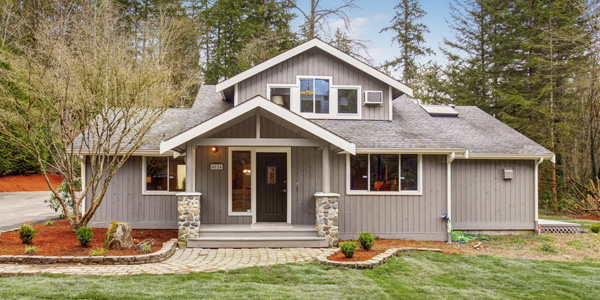Now about to “really retire” at ages 71 and 70 (you have each continued to work part time for the past five or six years), you’re in the process of updating your investment and estate plans. Having now made the firm decision to remain in your present home, you’ve been looking into financing a major remodel/restructure of the property using a reverse mortgage. You’ve discussed the wisdom of sharing your intentions with your two adult children. While they are equal beneficiaries of the house itself, there are other parts of the estate plan that treat the two differently because of a significant difference in their financial status., but you want them to be aware of their options in terms of the property.
In general, sharing your estate plan with heirs reduces uncertainty and conflict for them later on. The family discussion can give you the chance to explain your own decision making process relative to your home, allowing them to understand the options they will have. You may or may not want to include other aspects of your estate plan in this discussion. (When the editors of Kiplinger’s Magazine asked financial planners their opinion about parents treating heirs unequally in an estate plan, most advised open disclosure, “loving your kids equally but treating them uniquely”, with a second concluding “This doesn’t cause resentment because they’ve been open about it, and communication is key”..
As heirs of a home with a reverse mortgage in place, your children will have no responsibility for any deficit in the unlikely event the home is worth less than the debt at the time of the second of your deaths. On the other hand, should the children decide to sell the property and the proceeds exceed the amount owed on the mortgage debt, those excess funds will go to them. No sudden decision will need to be made, as they will have up to 360 days to decide how they wish to proceed. (Should they decide to sell, they will still need to keep the utilities turned on and the insurance maintained until the house transfers title.) As you’ve intuited, explaining all this now will prove reassuring to your heirs.
Congrats on your new “fully retired” status, as well as on your thoughtful consideration of estate planning options.
https://mutualreverse.com/david-garrison
Readers, if you’d like to see what you might qualify for with a reverse mortgage in Indiana, or to download your Reverse Mortgage Guide Click Here(and scroll down).
If your heirs want to keep the home after your death, they will have to repay either the full loan balance or 95% of the home’s appraised value, whichever is less. Borrower must occupy home as primary residence and remain current on property taxes, homeowner’s insurance, the costs of home maintenance, and any HOA fees. David Garrison, NMLS ID 1595194. Mutual of Omaha Mortgage, Inc. dba Mutual of Omaha Reverse Mortgage, NMLS ID 1025894. 3131 Camino Del Rio N 1100, San Diego, CA 92108. Indiana-DFI Mortgage Lending License 43321. Michigan 1st Mortgage Broker/Lender/Servicer Registrant FR0022702. These materials are not from HUD or FHA and the document was not approved by HUD, FHA or any Government Agency. Subject to credit approval. For licensing information, go to: www.nmlsconsumeraccess.org
Equal Housing Lender

